#rei saotome
Explore tagged Tumblr posts
Text

Happy 20th anniversary to GX, a show that has followed me from my childhood to now as an adult.
Historically in Japan, 20 is the age in which you pass into adulthood. So I guess GX itself has finally come of age.
#yugioh gx#judai yuki#jun manjoume#shou marufuji#ryo marufuji#yubel#asuka tenjoin#fubuki tenjoin#pico art#fujiwara yusuke#austin o'brien#johan andersen#jim crocodile cook#tyranno kenzan#edo phoenix#chronos de medici#rei saotome#hayato maeda#daichi misawa#amon garam#saiou takuma#yugi muto#jaden yuki#daitokuji#ygo gx#yugioh#ygo#gx
541 notes
·
View notes
Photo
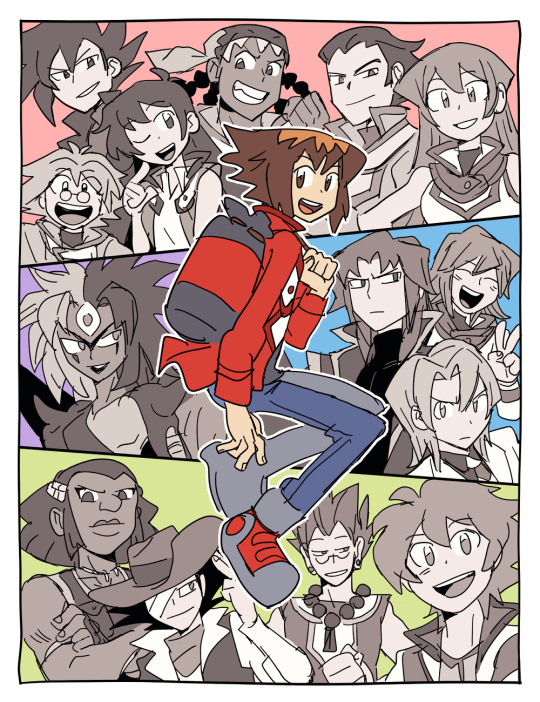
gx!!
#yugioh#yugioh gx#if i tag all the characters i will die#jaden yuki#judai yuki#jun manjoume#rei saotome#sho marufuji#tyranno kenzan#daichi misawa#asuka tenjoin#yubel#ryo marufuji#edo phoenix#fubuki tenjoin#austin o'brien#jim crocodile cook#amon garam#johan andersen#i dont know if tumblr has a tag limit but if i tag all their dub names i will certainly hit it#THE GX CAST IS SO GOODDD
2K notes
·
View notes
Text

#art#yugioh gx#ygo gx#yuki judai#jun manjoume#asuka tenjoin#fubuki tenjoin#ryo marufuji#edo phoenix#shou marufuji#rei saotome#daithi misawa
216 notes
·
View notes
Text

@gxweek day 1: yearbook
209 notes
·
View notes
Text
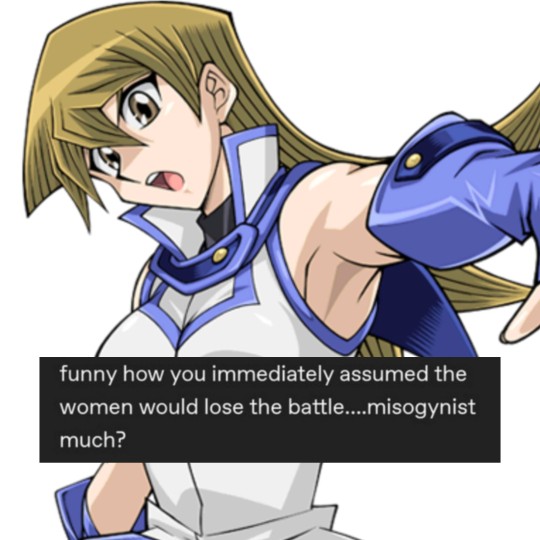



happy new years yugioh fans! here's a funny
#yugioh#yugioh gx#chazz princeton#jun manjoume#alexis rhodes#asuka tenjoin#blair flannigan#rei saotome
234 notes
·
View notes
Text
○° Part of you, and a part of me
Close your eyes and you will see
It's not hard to believe °○
Trying to get back into drawing more again, and I wanted to really finalize these designs to where I'm actually happy with them, so here we are!
Sheets for each of the 4 girls with all of their parts and pieces for reference and just to look at how pretty they are! 🥰
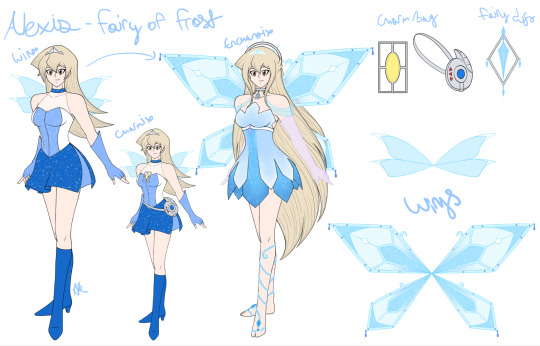
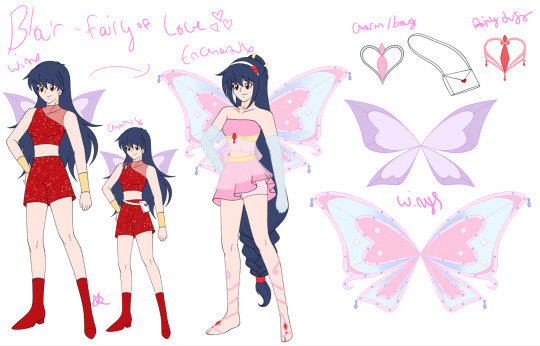
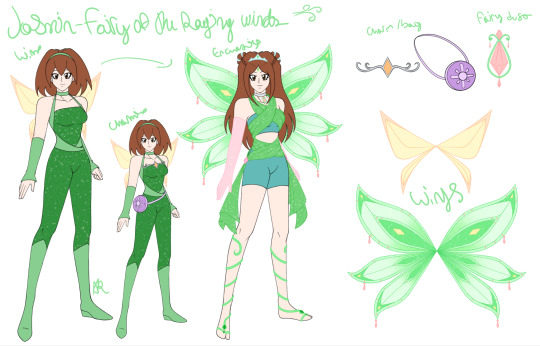
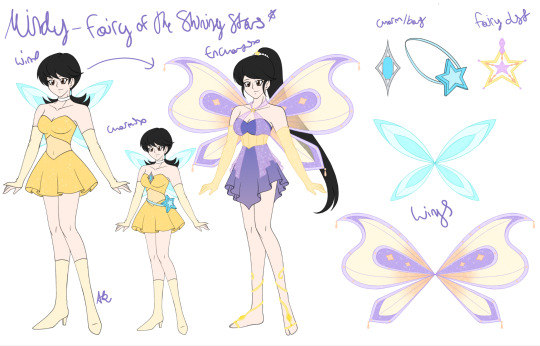
Click for better quality as always, tumblr has it out for me in that way hahaha 😅
#I forgot to draw a little symbol on alexis's for her powers like the others and I'm not hoing back to fix it now hahahaha#I wish I had a story or something to go along with this winx au stuff instead of just unrelated assorted drawings#mostly of alexis too hahahahaha#i stg I've designed and redesigned this stuff a billion times I'm so sorry guys you must be so tired of my ass by now haha#but look how prettyyyyyyyyyy!!!!#really didn’t touch Alexis at all beyond reworking her accessories a bit but the other 3 needed work I wasn’t happy with them#I've grown very attatched to mindy during this process specifically too oddly lol#anyway I'll try to bring you guys something more interesting next time I actually finish a drawing but I worked very hard on these#and I love them! so I'll subject you to designs and redesigns as many times as I want hahahahahahaha 😈#yugioh gx#ygo gx#alexis rhodes#asuka tenjoin#blair flannigan#rei saotome#jasmine and mindy#junko and momoe#winx club#4kids winx club#the only winx club for me sorry#abby attempts to draw#<- one day I'll be confident evnough to have a genuine art tag but we're still here haha#my art <3
28 notes
·
View notes
Text

she pissed me off so much when i was watching the show 🙏😭 like man why is this fujo kid here hello
65 notes
·
View notes
Text

20 notes
·
View notes
Text
ROUND 1D, MATCH 5 OUT OF 8!

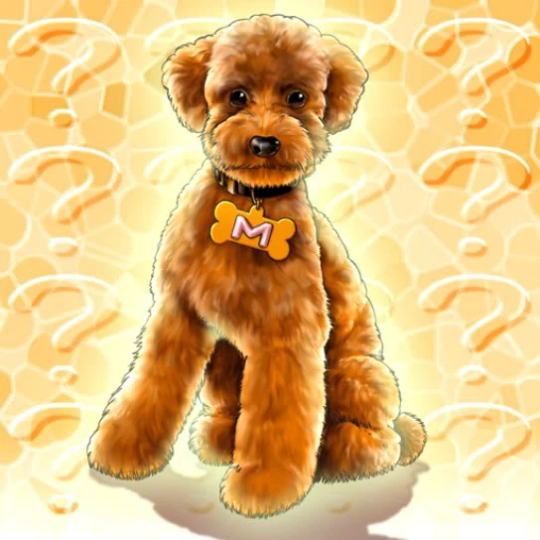
Monster Stats & Propaganda Under the Cut:
Rescue Cat is used by Momoe Hamaguichi (Mindy in the English dub). Its stats are the following:
Attribute: EARTH
Level: 4
Type: BEAST / EFFECT
Effect Type: IGNITION / CONDITION
Effect (according to the anime): “By sending this face-up card to the Graveyard, Special Summon 2 Level 3 or lower Beast-Type monsters from your Deck. The monsters Special Summoned this way are destroyed at the end of this turn.”
ATK / DEF: 300 / 100
Propaganda:
BABY MEOW MEOW!!!!
OBJECTIVELY THE BEST BECAUSE LOOK AT IT. This cat saves lives.
Outstanding Dog Marron is used by Rei Saotome (Blair Flannigan in the English dub). Its stats are the following:
Attribute: LIGHT
Level: 1
Type: BEAST / EFFECT
Effect Type: TRIGGER
Effect (according to the anime): “When this card is sent to your Graveyard, add it to your Deck and shuffle it.”
ATK / DEF: 100 / 100
Propaganda:
I mean, it's not called REGULAR dog maron, is it?
She's outstanding. She's a dog. She's Marron. Three great points right there.
#rescue cat#outstanding dog marron#mindy#momoe hamaguichi#rei saotome#blair flannigan#yu-gi-oh#yugioh#yu-gi-oh gx#yugioh gx#gx#polls#poll bracket#poll tournament#round 1#round 1d#yugipoll
43 notes
·
View notes
Text

Duel Links: Rei Full Victory Sprite
15 notes
·
View notes
Text

🎶 Grandma got ran over by a reindeer🎶
#yuma tsukumo#astral zexal#ray akaba#ray shadows#rei shingetsu#rei saotome#ygo zexal#ygo arc v#ygo gx#yugioh
11 notes
·
View notes
Text
GX Character Names - an in-depth analysis
(i promise there's more substance than you think)
⇀ yūki jūdai (遊城 十代)
« yū (遊) - play, enjoyment » « ki (城) - castle »
The yū (遊) uses the same kanji that all the other Yu-tagonists have, but it's probably more relevant to Judai than any other protagonist. 遊 is a particle with many associations, most notably play and games, but also enjoyment, freedom, travel, and hedonism. All the protagonists play children's card games, but Judai is the one who most treats it like a children's card game, even when he shouldn't. His signature phrase is literally "That was a fun duel!"
The ki (城) kanji means castle and could be a slight nod to his past life, but more importantly, yūki is a homophone of 勇気, meaning courage and fighting spirit -- fitting for his hero theming and pure shonen protag energy.
« jū (十) - ten » « dai (代) - generation »
First of all, there's a fun connection with the first character of Judai's name meaning 10, to the first character of Manjoume's name being 10,000, as well as the Tenjoin siblings phonetically having 'ten' in their name (Fubuki even references it by signing his name '10join').
The second character dai (代) is fitting given the name of the show. The G in GX stands for "Generation." And the X stands for "neXt," but get this -- X is also 10 in roman numerals.
That's right... Judai's name is literally GX.
It goes deeper though. The more blatant meaning is that taken together, 十代 means adolescence, or teenager (it has similar etymology to the latter, something like "the tens ages"). But jūdai is also a homophone of 重大 - serious, grave, of great importance. That's it, those are literally the themes of the show in one name.
GX is ultimately a coming of age story. Judai is a kid who just wants to play games and have fun, but over the course of the show, is forced to give up that childish simplicity in the face of adult responsibility. He starts off believing that being a hero is just about courage and shonen ideals, and learns though grave consequences that it's not, and that being a hero isn't fun at all.
⇀ manjoume jun (万丈目 準)
« man (万) - ten-thousand » « jou (丈) - height, strong » « me (目) - eye, seeing »
This is where the 1, 10, 100, 1000 chant comes from. Combined with the second character, it feels grandiose and ego-inflated, then when you add on the final character, me (目), associated with seeing, the vibe you get is something like "looking down on (from a height of 10,000)." All of which makes his insistence on being called Manjoume-san even more conceited, but also gives you an idea of how the Manjoume family name looms over Manjoume himself.
« jun (準) - semi, secondary »
In contrast to his family name, his given name shows us the other side of Manjoume's character. jun has several kanji spellings with positive and auspicious meanings. One of them, 潤 (to profit, to become wealthy), would have been an obvious choice for our rich boy.
But no, instead they chose 準, a kanji with a meaning that can be difficult to pin down. It's associated with preparation and reserves, such as reserve funds (準備金) -- in other words, being the back-up, extraneous. In the workforce, it indicates assistants, associates, juniors (準会員, 準社員). It's part of the words for semi-finals (準決勝) and runner-up (準優勝). Ultimately, it's a character that carries a meaning of being secondary.
Underneath all that snobby pomp, Manjoume feels inferior to his brothers, and can also never win against Judai, and this drives his character arc. The tension between his last and first names, of "looking down on" and "being secondary," is emblematic of Manjoume's internal conflict.
This is driven in even further by the fact that his brothers have first names that complement their last name. The first character of his oldest brother's name, Chosaku (長作), means leader, senior, or superiority (which directly parallels the meaning of associate for Jun, and also fits with Chosaku being a businessman), but it's also phonetically the same as 兆 which means one trillion, basically exaggerating upon the 10,000 of his last name.
Meanwhile his middle brother Shoji's name (正司) starts with the character associated with truth and lawfulness (ironic considering he's a slimy politician), was archaically used to mean of higher rank in court (again paralleling Jun), and also has a niche meaning of 10 to the 40th power, or... 10,000 trillion trillion.
⇀ marufuji shou (丸藤 翔) and marufuji ryou (丸藤 亮)
« maru (丸) - circle, entirety, perfection » « fuji (藤) - wisteria »
Circles are significant symbols in Japanese culture, used in divination to represent completeness and perfection, and the kanji 丸 also carries this meaning. Wisteria is a cultural symbol too, representing love and longetivity, with a tie to royalty and nobility.
All together, the name rings as elegant and dignified. In season 1, we see how Shou feels pressured and unable to live up to the name he shares with his brother, who embodies it. Perfection is a key part of Ryou's character -- in the graduation duel, he even acknowledges that he has reached perfection, but also that it is a limit, setting up for the deconstruction of the theme.
« shou (翔) - to soar »
Shou's name simply represents his character arc, starting from Osiris Red with no confidence in himself, and ending in Obelisk Blue, surpassing his brother who has an opposite arc of "falling." It's also a homophone of 小 meaning small or younger.
« ryou (亮) - clear, brightness »
The kanji used for Ryou's name is part of words like moonlight (亮月), rightfulness (亮直), as well as words associated with royalty, like mourning the emperor (亮闇). All of which vaguely match the tone of Ryou's character as "the Kaiser." The Cyber Dragons are also light attribute, and he is introduced with "light" theming which is all reversed after his turn to the dark side in season 2.
The kanji can also be part of the word ryousatsu (亮察) which can mean to take into account, to consider, and to sympathize. A core theme of Ryou's character is having respect for his opponent and not underestimating them -- this is why you'll often hear Shou referring to "respectful dueling," and also why Power Bond is their signature card, because without respecting your opponent's capabilities and taking their field into account, the card will backfire on you.
Oh, and as an aside, Ryou does not use the same kanji as Bakura Ryou from the original Yu-Gi-Oh, who uses 了 -- completion or ending.
⇀ tenjoin asuka (天上院 明日香) and tenjoin fubuki (天上院 吹雪)
« tenjo (天上) - heavens » « in (院) - institution »
The first part ties into the Cyber Angels that Asuka uses, as well as the Atmosphere cards that Fubuki uses in the manga. It's also referenced by Fubuki in his embarrassing pickup line ("What do you see above?" "Ten... join!" This is the guy that Manjoume thinks is the love magician)
The second part is a particle used for institutions, particularly stately ones in government or higher education, which makes sense if you believe Asuka becomes a teacher. Overall, it's a refined name which perfectly suits Asuka, and not Fubuki.
« asu (明日) - tomorrow » « ka (香) - fragrance »
The first part of her name is why Jim calls her Tomorrow Girl, which spawned the Asuka/Jim ship by itself, but it also suits Asuka really well, because her character arc in season 4 is ultimately about moving on and embracing the future. She leaves behind the safety of Duel Academy and takes a step into the unknown by going to America.
« fubuki (吹雪) - blizzard »
This is why he's nicknamed the Blizzard Prince. Otherwise, he doesn't have any connection to blizzards, but Asuka uses ice decks in the Society of Light and in the manga, so the Tenjoins both have some ice theming.
⇀ misawa daichi (三沢 大地)
« mi (三) - three » « sawa (沢) - marsh, brilliance »
Another number-themed name alongside Judai's 10 and Manjoume's 10,000. sawa is a common kanji in names, but you could argue it ties into his signature monster, Water Dragon.
« dai (大) - great, vast » « chi (地) - earth »
Of his six decks, we see two of them, his water deck and his earth deck. The latter of which he uses against Tania, who in turn uses her wisdom deck -- which is perfect because daichi can also be a homophone of 大知, which means great wisdom. Nerd.
⇀ tyranno kenzan (ティラノ 剣山)
« tyranno (ティラノ) »
This name is derived from tyrannosaurus rex. Because he's got dino fucking DNA.
« ken (剣) - sword » « zan (山) - mountain »
The literal characters are fitting for Kenzan, who has an offense-focused deck of mostly earth attribute monsters, and a personality to match. But as a whole, 剣山 refers to a tool in traditional flower arrangement. The kenzan is the base in which the arrangement is stuck into, a foundation which keeps the structure secure. Kenzan ultimately looks up to Judai (and calls him aniki) because he wants to be a leader like him, one who can bear the weight of his followers' expectations. We don't get much of this after his introductory episode, but I still think it's a fitting name for a dependable guy.
⇀ saotome rei (早乙女 レイ)
« sa (早) - early, quickly » « otome (乙女) - maiden »
This one is pretty on the nose. The first character refers to how she came to Duel Academy early, being younger than all the other characters, and not joining the cast until much later. The otome is the same used in her signature card Koisuru Otome, or Maiden in Love, and also refers to a romance genre for girls. As a whole, saotome is also a term for a girl who plants rice paddies.
The name may also be a reference to Saotome Ranma, the protagonist of Ranma ½, which is about a boy who changes into a girl when splashed with water.
« rei (レイ) »
Rei is a unisex name with many different kanji spellings and meanings, but instead, Rei's name is spelled with katakana. Given that she dresses as a boy twice and uses masculine pronouns in Japanese, this may be to make the gender more ambiguous than if kanji with more gendered connotations were used, such as 麗 (graceful) or 鈴 (bell sound) which are more feminine, or 零 (zero), or 令 (authority) which are more masculine.
If you ever wondered, Ray from Arc-V also uses the same katakana spelling, though this may be because most of the Arc-V characters from other dimensions use katakana, which sounds more foreign or ambiguous in origin. Meanwhile, Rei from Zexal uses 零 (zero).
---
Feel free to correct me if anything doesn't seem right! I'm not Japanese and may have read too much into some of this.
#gonna start putting out more content that isn't art#the gx thoughts have been contained for too long#judai yuki#jun manjoume#shou marufuji#ryo marufuji#asuka tenjoin#fubuki tenjoin#daichi misawa#tyranno kenzan#rei saotome#yugioh gx#ygo#ygo gx#pico commentary
186 notes
·
View notes
Text

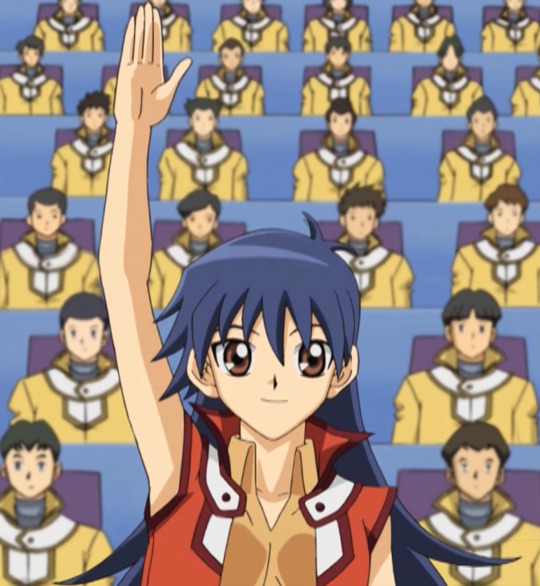
ROUND 4 SIDE B MATCH 2-SEMI FINALS
AUSTIN O’BRIEN/AXEL BRODIE FIRE MILITARY SOLIDER VS REI SAOTOME/BLAIR FLANNIGAN MAIDEN IN LOVE
#yugioh#ygo#yugioh gx#Ygo gx#gx#austin o'brien#austin o brien#axel brodie#rei saotome#blair flannigan
56 notes
·
View notes
Text

#ygo gx#art#yugioh gx#yuki judai#shou marufuji#judai yuki#yubel#jim crocodile cook#austin o'brien#johan andersen#yusuke fujiwara#ryo marufuji#edo phoenix#rei saotome#asuka tenjoin#fubuki tenjoin#daithi misawa#tyranno kenzan
367 notes
·
View notes
Photo

Part one of a ship meme where I had my twt followers give me ygo pairs to draw :^) Except I’m not too good at traditional ship art so i got silly with it
#yugioh gx#idolshipping#sinistershipping#thirdshipping#visionshipping#dartz#maximillion pegasus#pegasus j crawford#zane truesdale#atticus rhodes#fubuki tenjoin#ryo marufuji#ishizu ishtar#mai valentine#blair flannigan#marcel bonaparte#rei saotome#ygoart#dana art
169 notes
·
View notes
Photo
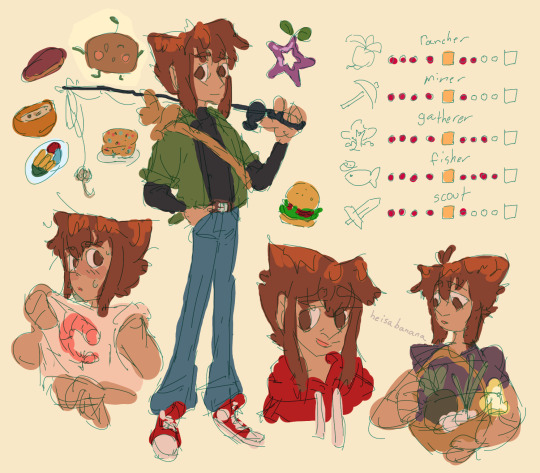
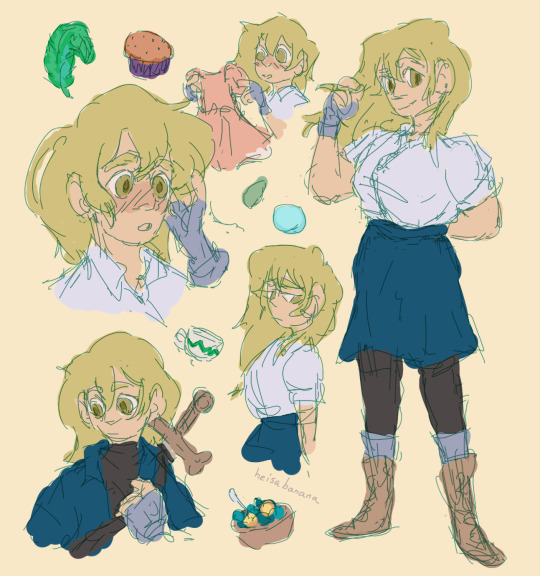
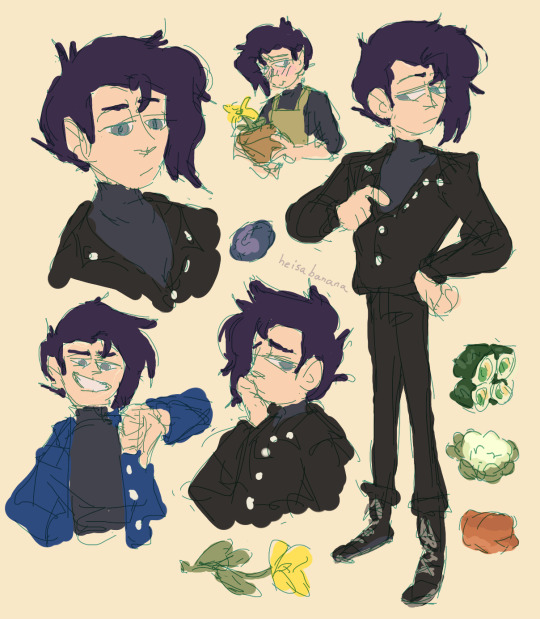



🌷⚡️🌷
been wanting to pick up stardew valley again
part 2 part 3
#stardew valley#yugioh gx#myart#digital fanart#digital art#Jun Manjoume#asuka tenjoin#junko makurada#momoe hamaguchi#rei saotome#Judai Yuki#sho marufuji#hayato maeda#daichi misawa
130 notes
·
View notes